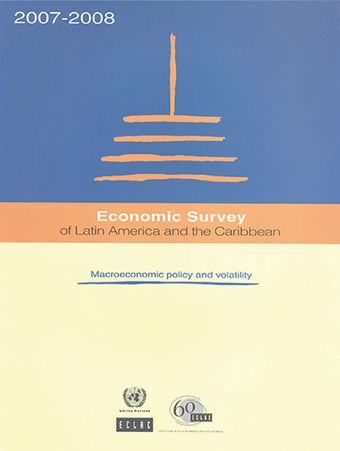Argentina

- Author: Economic Commission for Latin America and the Caribbean
- Main Title: Economic Survey of Latin America and the Caribbean 2007-2008 , pp 105-112
- Publication Date: December 2010
- DOI: https://doi.org/10.18356/91a4213f-en
- Language: English
The remarkable expansionary phase that followed the crisis of the early 2000s continued in 2007, and this was reflected in falling unemployment. The surge in activity was once again accompanied by a balance-of-payments current account surplus, while the primary surplus remained at almost 3% of GDP. International financial shocks had repercussions for the country’s economy, although its buoyancy was not noticeably affected. In addition, average export prices and the terms of trade continued to rise. Amidst debate on the methodology and measurement accuracy of the consumer price index, public attitudes seemed to reflect growing concerns over inflation. Following the presidential elections held in October 2007, which were easily won by the ruling coalition, the general direction of economic management remained the same.
-
From This Site
/content/books/9789210544580s008-c001dcterms_title,dcterms_subject,pub_keyword-contentType:Journal -contentType:Contributor -contentType:Concept -contentType:Institution105



